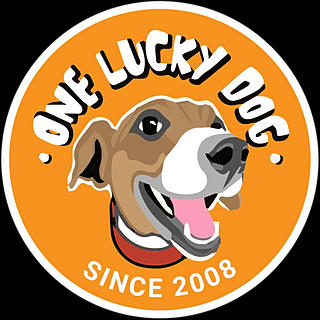Dog food allergies and intolerance
- Linda Healy
- Aug 12, 2020
- 3 min read
We often think of food allergies and intolerance as the same thing. They both cause your dog to have an adverse reaction, but they're not quite identical. Your dog has a food allergy when her immune system reacts against certain ingredients in her food, like soy protein.
A good intolerance, on the other hand, doesn't affect the immune system at all. Instead, it occurs when certain ingredients in the food (lactose is a common offender) upset the stomach, intestines or another part of the body.
While the underlying causes are different, food intolerance are similar in that they can make your dog feel miserable. Occasionally, it's as simple as a dog eating her food, then bringing it back up again real quick. But usually, the link isn't quite so obvious. The food could cause rashes, digestive difficulties, asthma-like symptoms, lots of itching and scratching or abnormal behaviour, or all sorts of other problems that have absolutely nothing to do with mealtime on the surface.
Suppose, for example, your dog has a history of recurrent ear infections. There's a possibility that a food allergy could be playing a role in her discomfort. An adverse reaction to food isn't an easy thing to detect., but it will be worth it, for your dog's health and happiness, if you can find out for sure. Then you can stop feeding her the usual and find a new diet that suits her better. Your vet will help you here.
Fixing Food Allergies
You can't cure a food allergy or intolerance, but you can fix the problem by finding out what food disagrees with your dog. To do this, you'll need the advice and guidance of your vet and the cooperation of your pet - not too difficult since her main role will be eating. Oh, and you"ll need time and patience, since it can take weeks or even months to make a diagnosis. But the results can really mike it worthwhile.
Do and elimination diet. The only way to know for sure what food gives your dog a bad reaction is to eliminate it from her diet for one to two months to see if she improves. But there are many ingredients in her food and you don't know which particular one has to go.
But there are many ingredients in her food and you don't know which particular one has to go.
The only way to find out is to take her off everything she usually eats and restrict her diet to something she's never been exposed to. This is based on a simple rule about allergies: You can't be allergic to something you've never eaten before-allergies build up over time.
So if your dog dramatically improves on her elimination diet and then she gets worse again when you start her back on the usual, you know the problem is in the food. Not the brand of food but the ingredients. And not the equality of the ingredients, just the actual ingredients. If she's allergic to beef, it doesn't matter if it's a sirloin steak or a fast food hamburger- they'll both set her symptoms going again.
Feed her new foods. Your vet will recommend a diet specially designed for your dog. Her test diet will probably consist of a meat source such as lamb, rabbit or venison, combined with a carbohydrate like rice or potatoes. There's nothing magical about any of these ingredients, except that they must be new to your dog. If there's lamb in the food your dog normally eats, lamb is out and something else in.
Find the food for her. You've hit the jackpot when it comes to successful treatment, because you can fix her problem 100 percent, and no drugs are needed. If it turns out your dog is allergic to soy, for example, just buy a dog food without soy. Got a problem with lactose? Give her a food that contains no dairy products.

























Comments